It’s Pride Week in Vancouver!
Check out the Faculty of Education’s Pride Wall full of videos, podcasts, expert interviews and more.

See our SOGI related events and resources.
Okanagan Pride Week is scheduled for Sept. 19 to 27, 2020. Learn more.
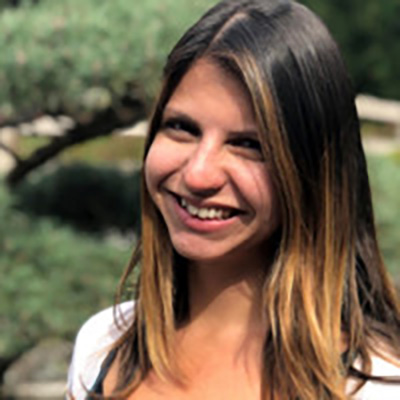
Amanda began working at the Okanagan School of Education, UBC, in 2019. Previously she worked at the City of Kelowna where she was responsible for developing strategic communications plan and delivering tactics for the Active Living and Culture Division as their Communications Advisor. Prior to that she was the Digital Communications Consultant where she was one of the project managers for the City of Kelowna website redesign launched in 2016.
She has an Advanced Social Media Strategy Certificate from Hootsuite Academy.
She was a volunteer English Teacher in Ho Chi Minh City, Vietnam from August 2013 to January 2014.
Corporate Communications, Media Relations, Social Media, Student Engagement, Student Recruitment and Marketing.
Check out the Faculty of Education’s Pride Wall full of videos, podcasts, expert interviews and more.

See our SOGI related events and resources.
Okanagan Pride Week is scheduled for Sept. 19 to 27, 2020. Learn more.
Posted in Uncategorized
Classrooms are increasingly foregrounded as sites to address civil, racial, ecological, and social tensions and concerns, and inspire transformation and reconciliation. The Okanagan School of Education (OSE) continues to invest accordingly, embodying inclusive pedagogies and practices. Race, racialization, and racism in educational contexts matter, and all OSE programs are concretely exploring ways to build more equitable relations among different racialized groups. Sexual orientation, gender identity, and mental health shape individual and collective well-being, and OSE programs invest in the creation of learning contexts that invite all learners to grow their potential –learning with, from, and through each other.
The Okanagan School of Education faculty and staff have developed a shared statement on the School’s anti-racist commitment.
Faculty and staff of the Okanagan School of Education are committed to fostering genuine dialogue around issues of racial injustice in education with educators, students, colleagues, and the greater community—bringing to bear policies and practices in our local and global institutions. We aim to empower educators and their students to dismantle patterns of racism and injustice in school and community settings, and invest in developing more democratic and more just societies.
Our hopes calling us to actions are to:
Posted in School of Education, Spotlight
Whether your Bachelor of Education (BEd) courses are online or in-person the Okanagan School of Education is committed to your learning. We invest in our students’ responsive capacities so they can continually adapt to emergent and diverse situations and needs.
Frequently Asked Questions
When does the program start?
Orientation will take place online on September 8. Your first day of EDUC 403: Becoming a Scholar-Practitioner begins on September 9 and will be online. You will receive more information by late August about your first week of school.
What does Winter Term 1 look like?
Our program has a look and feel quite different from others. Our courses are organized into Blocks. Your Winter Term 1 will consist of two blocks: Block 1 (EDUC 403) takes place from September 8 to October 2. Block 2 (EDUC 438) takes place from October 5 to December 4. You will then have a two-week Field Experience from December 7 to 18.
Most of your courses will have a synchronous learning component, where you’ll be engaging with faculty, other teacher candidates and guest speakers in real-time. There will be some asynchronous learning during your Blocks. This means that the instruction doesn’t occur in real-time. There may be pre-recorded video lectures to watch or it may be time to work on an assignment. Candidates will participate in online discussions related to key topics with each other and their instructors. Some current candidates have found it helpful to organize study groups to help stay on track and focused during these times.
In addition to your blocks, you will be assigned to an Advisory group by the end of September. Your Advisory sessions will prepare you for school visits and extended field experiences. It is anticipated that these Advisory sessions in-person in small groups on campus. These sessions are facilitated by a faculty advisor and will be held throughout the year.
We understand some students may be nervous about online learning. The faculty of the OSE, who will be your instructors, will work with you to help you navigate this online learning experience in meaningful and engaging ways. UBC uses a powerful user-friendly learning management system (Canvas) that supports students’ educational goals. Supports will be in place throughout the Blocks to ensure you can access and use Canvas.
What will my daily time commitment be?
We suggest being available from 8:30 a.m. to 4 p.m. Monday to Friday for your coursework. You will be sent a calendar that outlines how each week will be arranged in terms of exact learning times for each Block.
Do I have to be in Kelowna for Winter Term 1?
Your field experiences in schools are planned to begin in October. We ask that you are in the UBCO area in-person by October 1. You will be meeting with a mentor teacher and students in some capacity.
Will we physically be placed in K-12 schools?
In-situ coursework begins in Block 2. These are classes that are held in K-12 schools where you will be working with students and teachers. The courses in Block 2 will likely be blended, some face-to-face small classes on campus, some work in schools, and some online work (synchronous and asynchronous).
The Ministry of Education will be providing ideas regarding the next steps for schools in late August. The BC K-12 Education Restart Plan has a frame that will guide next steps. You should familiarize yourself with the Restart Plan as well as with the Public Health Guidance for Safe & Healthy Schools (please note that this document may be updated in the summer).
Additional resources
Coronavirus (COVID-19) and UBC’s Response: Information and FAQs available. Read More.
Okanagan Campus: List of closures and modified hours for services. Read more.
Students seeking emergency assistance funding should contact UBCO’s financial aid office at sis.ubco@ubc.ca
Okanagan School of Education: Announcements and updates. Read more.
Questions and concerns
If you have concerns regarding your courses, please check Canvas. If you need to contact your course instructor about concerns, please email education.ubco@ubc.ca.
Your faculty advisor is here (once you’ve been assigned) to support your learning needs. Please feel free to contact your faculty advisor if you have questions or need assistance.
If you still have concerns or academic issues, email: Wendy Klassen, Director of Undergraduate Programs, the Okanagan School of Education at wendy.klassen@ubc.ca
As COVID-19 is a rapidly evolving situation, these online learning expectations may change as we get closer to the start of school or as the semester progresses.
Posted in Our Students, School of Education
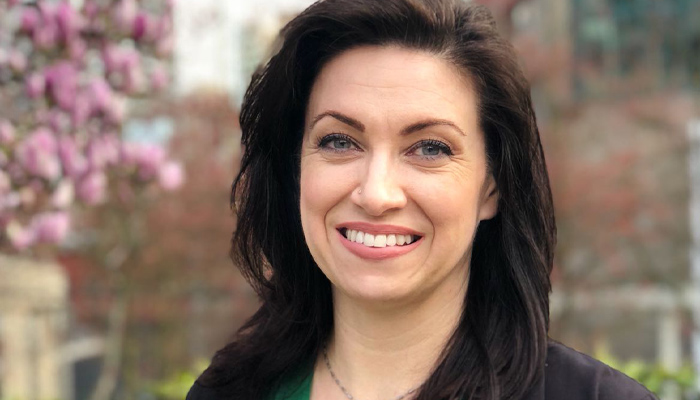
Please join us in welcoming Amber McLeod to the Okanagan School of Education.
McLeod will be the Program Coordinator for the English Foundation Program as well as a lecturer. She has been an EAL instructor for more than 17 years and has lived abroad in Mexico and Guatemala. She invites intercultural awareness and communication to transpire through respectful environments in her classroom.
Posted in Our Faculty, School of Education
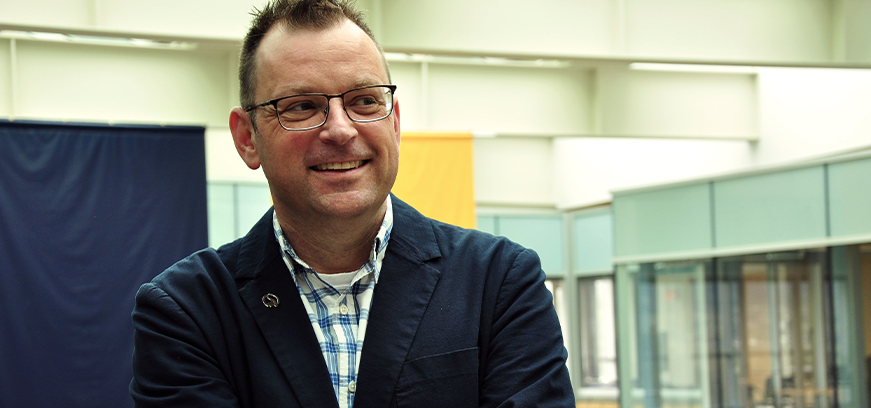
We’re growing! As of July 1, we’re the new official home of UBC Okanagan’s English Foundation Program.
Join us in congratulating Professor Scott Douglas in his new role as Director of English as an Additional Language Programs.
Dr. Douglas enjoys working with teacher candidates, graduate students, and in-service teachers exploring English as an additional language teaching and learning in a wide range of contexts. His research interests include English for academic purposes, short-term study abroad, intercultural communicative competence, teacher education/development, and materials design.
He is also the editor of the BC TEAL Journal, the peer-reviewed publication of the Association of BC Teachers of English as an Additional Language.
Learn more about the program.
Posted in Featured Programs, Our Faculty, Spotlight
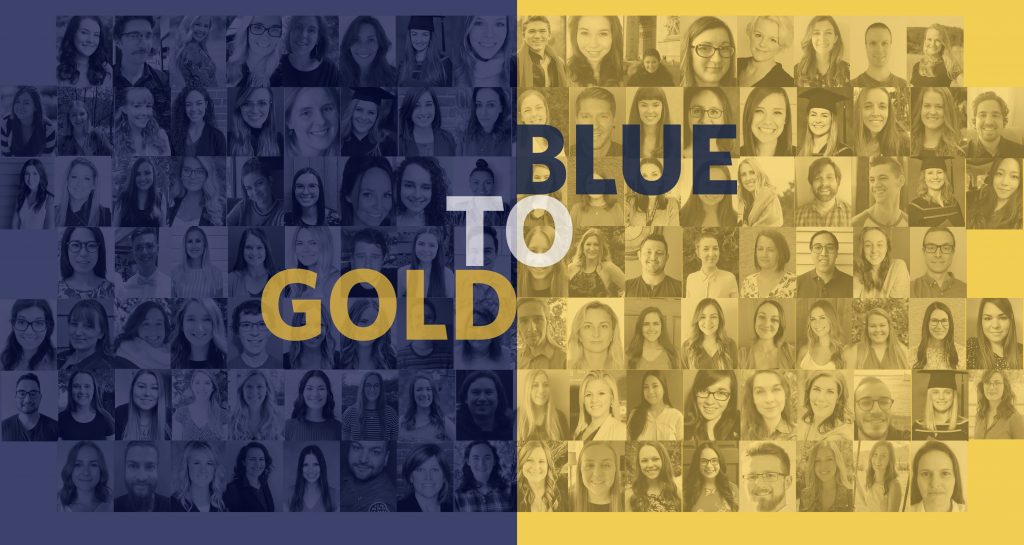
On June 24, we hosted our first online Celebration of Learning.
The Celebration of Learning is an opportunity for our teacher candidates to share their significant learning to date and incite conversations about educational issues and concerns. Each year, the candidates present in groups of their peers and experienced educators who act as table hosts. This year presented a new challenge as the presentations were completed entirely online. Despite this challenge, the candidates rose to the occasion and showcased their resiliency and thoughtfulness as future educators.
“The teacher candidates [had] amazing presentations and displayed some deep thinking and passion for teaching. It truly was a privilege to hear and see their journeys,” says Carol McAndrew, one of the table hosts. “An area that was key to me was their understanding of the importance of building strong relationships with students, staff, parents and community. An area that they all recognized as one to work on is differentiating instruction.”
Table host, Bruce Weicker echoed McAndrew’s sentiments, “I thoroughly enjoyed the candidates who shared their learning – or moreso, shared from their hearts. I was truly impressed with each of them. I know each of them will be fantastic teachers as they have the interest and lives of kids front and center.”
“What an incredible experience this morning!” exclaimed Veronica Dumontet. “I felt so privileged to be part of the celebration of learning, to meet four amazing interns who each displayed compassion, empathy, curiosity, caring, sincerity, and a passion for learning. I was inspired by them and thank all who have guided their journey thus far.”
Doctoral student, Darlene Loland noted that “They were clearly passionate about teaching and were well prepared to share their learning. The values that they all articulated made me feel so hopeful for the future of the teaching profession.”
Following the presentations, our teacher candidates crossed off another milestone as they graduated from candidacy to interns. This event is marked by candidates switching from the blue lanyards used during their candidacy to yellow ones that will be used during their fall internships.
Below are a few presentations that our new interns allowed us to share.
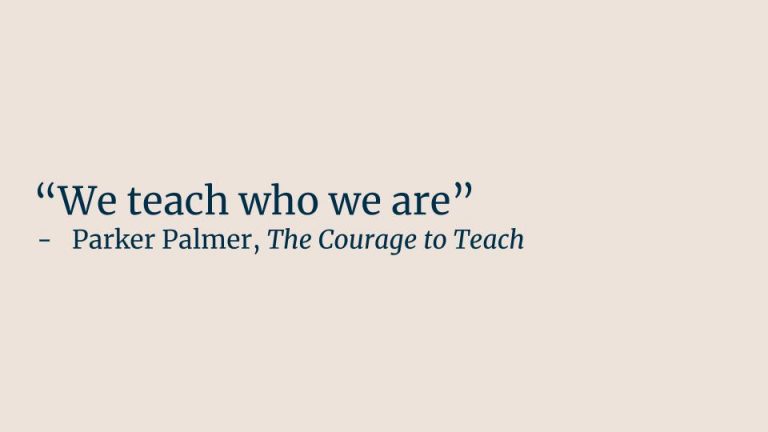
|
Aron Robinson
Parker Palmer’s quote, “we teach who we are”, has resonated with me throughout the course of this BEd program. I hold a position of privilege as a teacher, and I aim to be a role model for my students in showing care and respect to everyone, developing an inquiry mindset, and building positive, healthy habits in my life. If I can demonstrate qualities like these every day, it will go a long way in building and developing these qualities in my students. |
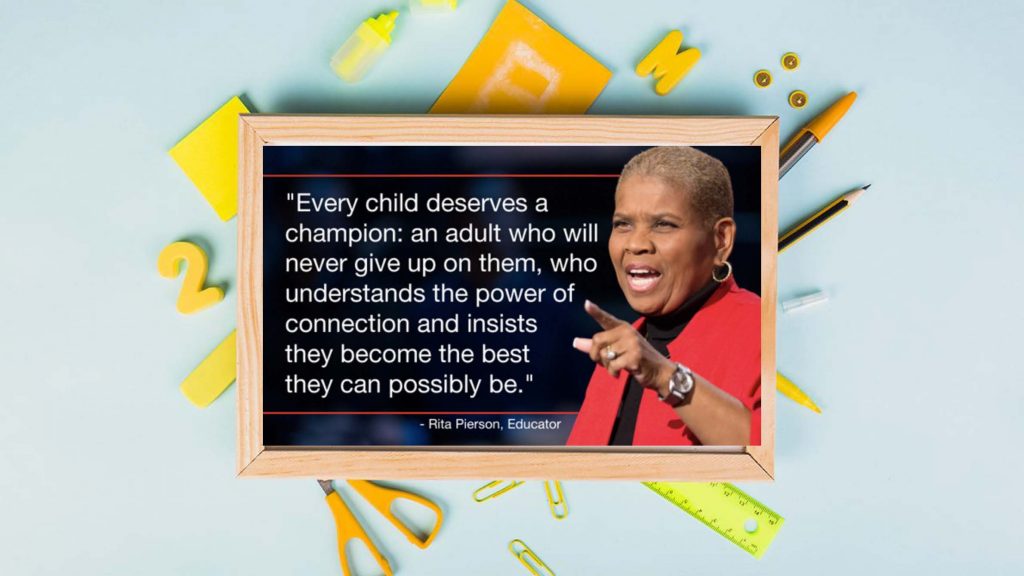
|
Stephanie Graham
My favourite video we watched during the last 10 months was Rita Pierson’s Ted Talks “Every Kid Needs a Champion.” Rita is an inspiring teacher and the video made me laugh and cry all within eight minutes. The power of connections, caring, and relationships is central to teaching. My favorite quote from the TEd Talk is “Children don’t learn from people they don’t like.” This video inspires me to become the best I can possibly be so that I can be all of my students’ champion. |
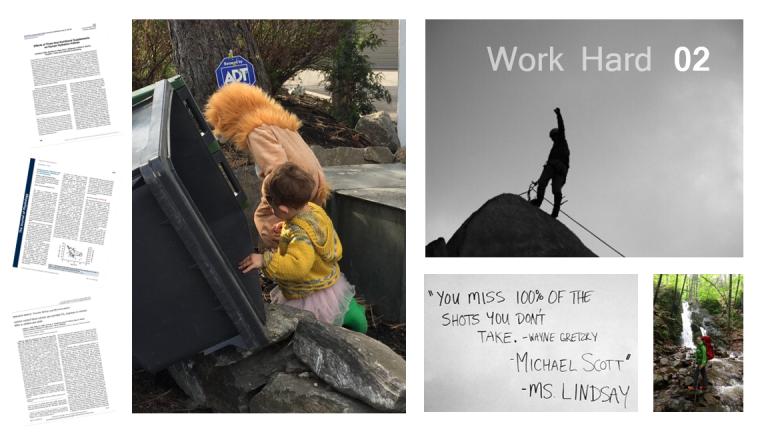
|
Lindsay Ellis
I sought to use this opportunity to share how my personal and professional virtues (wonder, working hard, standing up and having fun) have grown through blocks 1-5 and affect my teaching practice. In particular, I drove home the following points: 1.) We must take it upon ourselves to preserve the natural sense of wonder in kids. This is their greatest gift and our biggest responsibility., 2.) Working hard looks different for everyone and we must, as educators, provide ample opportunities for our kids to show their hard work in individualized ways; moreover, we need to model this ourselves through differentiated instruction. 3.) As educators, we must stand up for the under- and mis-represented populations in our personal and professional lives. One way to do this is by authentically living our truths; by doing so we give a voice to our kids. |
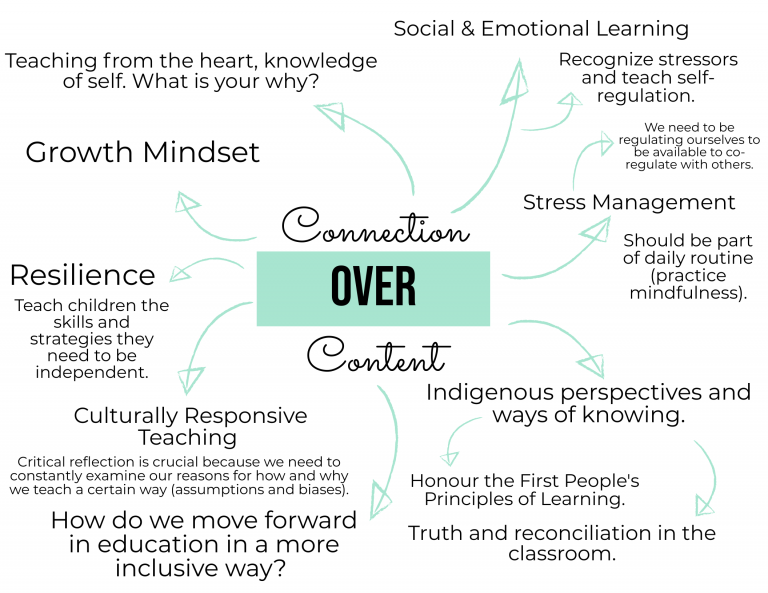
|
Sandy Grob-Arnold
The central focus is connection over content. I believe building positive relationships and teaching in a culturally responsive way, including Indigenous perspectives of knowing will be crucial for our internships and beyond. Teaching a growth mindset and providing children will SEL skills and strategies to be resilient in a continuously changing world is one of my main goals. |
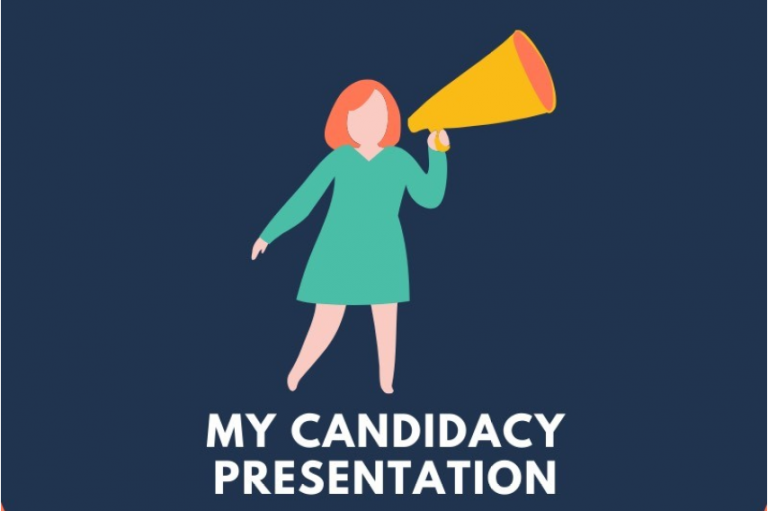
|
Keyanna Burgher
To summarize the learnings from the last 10 months in the program was an impossible task, as the experience really has been immeasurable. But overall I’ve learned more about who I am as a person, who I want to be as a teacher, and how I want to impact my students as learners and as global citizens. I look forward to continuing to explore my passion for education and my love for connecting with people. |
Congratulations once again to all of our new interns! And thank you to our wonderful table hosts.
Posted in Our Students, Research & Teaching, Spotlight
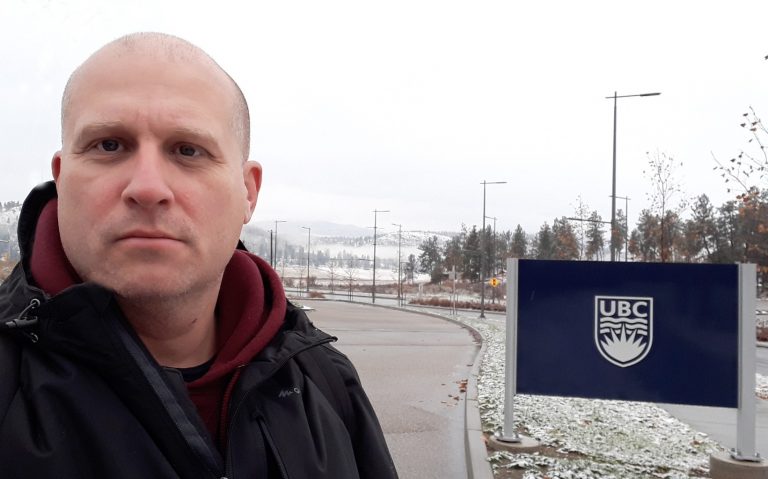
Congratulations to our Outstanding Master-Level Student Award recipient, Fabiano Camara!
Camara is more than deserving of such an award. Not only has he maintained an A+ average in his coursework, but he has also been a research assistant for a SSHRC-funded study pertaining to early learning environments and physical activity, and was recently hired by Dr. Cherkowski to help develop a graduate student online portal.
“UBC puts your values into practice and supports students in all matters. I feel very lucky and privileged to be surrounded by amazing people at UBCO,” says Camara. “I have had many opportunities to develop my studies and career as a whole. The Okanagan School of Education is continually offering high-quality options to help me flourish in my academic career. As a Graduate Teaching Assistant, I’ve been provided great opportunities to enhance my teaching skills and to build a learning community. And as a Research Assistant, I have been able to immerse myself in all the aspects of research in the Education field.”
What receiving the award means to you?
This award is one of the highest accomplishments in my career and personal life. I believe that the academic journey is composed of many aspects: courses, events, projects, meetings. I try to be involved in these activities as much as I can. I am honoured to receive this award because it symbolizes the recognition of years of studying, working and living education.
What was your research project?
My study focuses on the role of mentoring groups in the professional development of Physical Education (PE) Teachers. The purpose of my research is to understand the potential of a mentoring group for the development of PE teachers’ autonomy, based on critical pedagogies, through the Action Research methodology. I am preparing to organize the data collection to start in August 2020.
Why did you choose that project?
I have been involved in mentoring groups and service projects all throughout my undergraduate and graduate programs in Physical Education. In these academic activities, I realized that courses might not be enough to promote a proper transition from academic life to the professional environment. As a university Professor and Mentor, I have perceived a lack of studies regarding mentoring in PE practices. It is not completely clear what type of pedagogical trend the mentoring routine has been applying. I hope my research can contribute to making a model of mentoring that would be able to help mentor and students to a healthy and less stressful transition from the school to the workplace.
What advice do you have for future graduate students?
Be involved as much as you can! Try expanding beyond your courses. Research, service and internships are fundamental components of the graduate journey!
Supervisor: Dr. Stephen Berg
Posted in Featured Stories, Our Students, School of Education, Spotlight
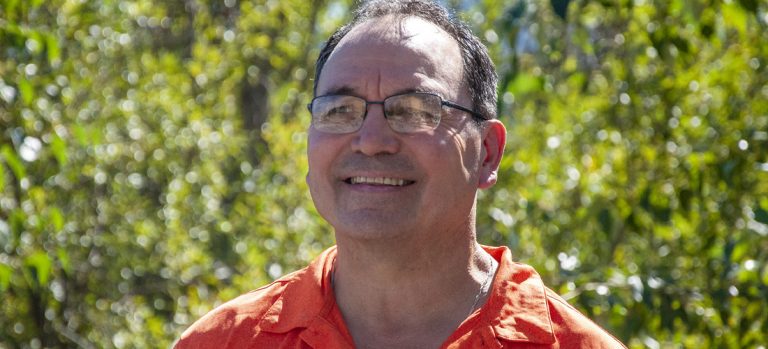
The Okanagan School of Education is pleased to welcome Dr. Bill Cohen to the faculty in the position of Assistant Professor!
Dr. Bill Cohen is from the Okanagan Nation with extensive kinship ties throughout BC and Washington. He specializes in the areas of Indigenous knowledge, research, education, and transforming pedagogy. For over twenty-five years, he has engaged in community-driven, transforming projects, as parent, volunteer, advisor, facilitator, and director. He is an educator, artist, story-teller and author. The focus of Dr. Cohen’s continuing research is to identify, understand and theorize the transforming potential of Indigenous and Okanagan knowledge and pedagogy through organic language and cultural knowledge revitalization. As an educator, he has organized numerous community, school, arts, language, literacy and numeracy projects involving elders, fluent speakers, parents and children.
Posted in Our Faculty, Research & Teaching | 2 Responses
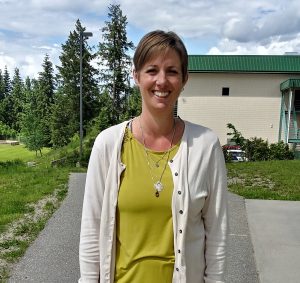
Congratulations to our Master of Education Outstanding Project recipient, Morgen MacDonald!
Morgen attended the Okanagan School of Education for her Bachelor of Education degree (2014), and we were delighted to see her again as she pursued her Master of Education!
“It was nice to work with some professors again on a deeper level and to meet new professors who shared similar passions,” says Morgen. “I did both online and on-campus classes and found both to be rewarding opportunities for collegial discussion and learning.”
What receiving the award means to you?
Receiving this award is an honour, to be recognized for writing about something you are so passionate about and for all the dedication, time and hard work that goes into a Master’s Capstone Project is really flattering. I am not alone in outstanding work though, I had classes with many colleagues who were all doing some really interesting projects that they were really passionate about.
What was your research project?
My project is a literature review of Mindfulness in the Classroom including a unit plan that is suitable for all grades to help educators get started with mindfulness. As a mindfulness practitioner and educator, I felt it was important to bring to light the many ways being a mindful teacher can affect your classroom. Our students are our mirrors, with a mindful, calm, openness teachers can model for students what regulated learning and being looks, sounds and feels like. In my paper, I discuss not only the useful aspects of mindfulness in the classroom but also some red flags to watch out for when looking to bring mindfulness into your own class. I truly believe that mindfulness is best taught by someone who has experience with it themselves. So, in the educational setting, mindfulness starts with teachers.
Why did you choose that project?
I have been passionate about mindfulness for many years. This started with my own personal journey, which is discussed in my paper. Along this journey, I brought some mindfulness practices to my classroom and witnessed a dramatic change in my students. From there, my personal research began which slowly grew into something I wanted to pursue on a more academic level. I was lucky enough to get connected with Dr. Karen Ragoonaden early on in my Master’s journey, as a supervisor who shares my interest in mindfulness.
What advice do you have for future graduate students?
My advice for future graduate students would be to find something you are passionate about. With every course, you take look for ways the learning connects to your passion. You will be pleasantly surprised to find that no matter the course there will be a link. In this way, you are constantly gathering sources for your research and also working through your paper with each course. This will help you to narrow down your topic, discover what specifically really interests you and find those colleagues and professors who share your passion. Don’t be afraid to take a risk, ask questions and dig deeper into topics or courses that interest you. The professors are so amazing at sharing their passions that it is well worth the time and effort to reach out to them for support and ideas.
Supervisor: Dr. Karen Ragoonaden
Posted in Featured Stories, Our Students, School of Education, Spotlight
Congratulations to our 2020 graduate student award recipients!
Vicki Green Graduate Award: Camille Rousseau
Stephen Daniel Pope Graduate Award: Leslie Shayer
Master of Education Outstanding Project: Morgen MacDonald
Master of Arts Outstanding Thesis: Nicole Harris
Outstanding Master-level Graduate Student: Fabiano Camara
Master-Level Outstanding Presentation/Publication: Leslie Shayer
Doctoral Studies Outstanding Conference Presentation: Darlene Loland
Posted in Featured Stories, Our Students, Spotlight